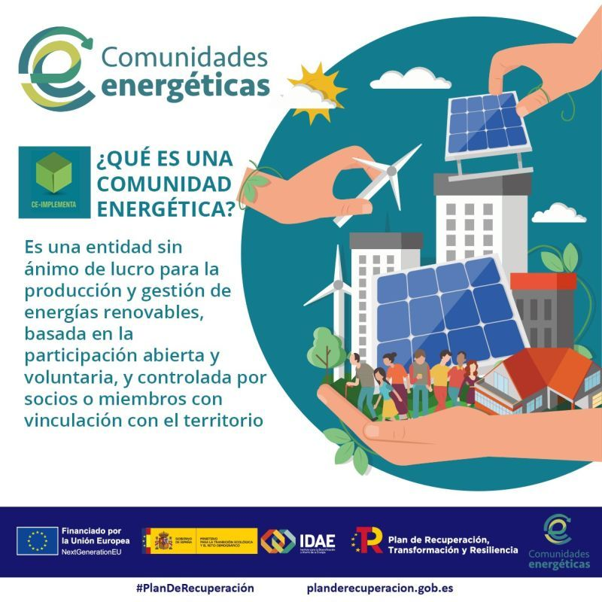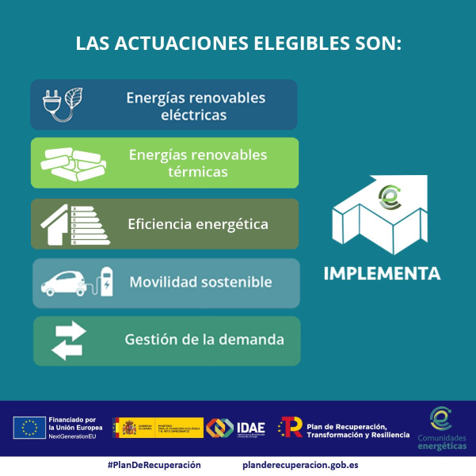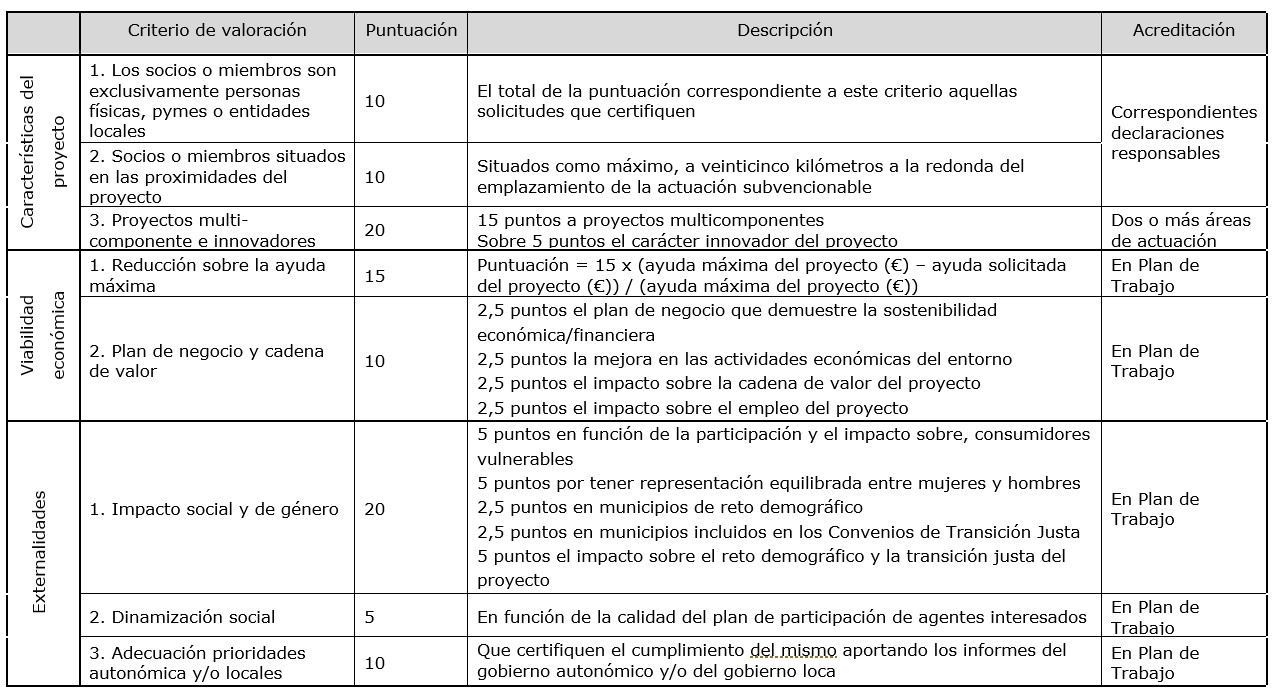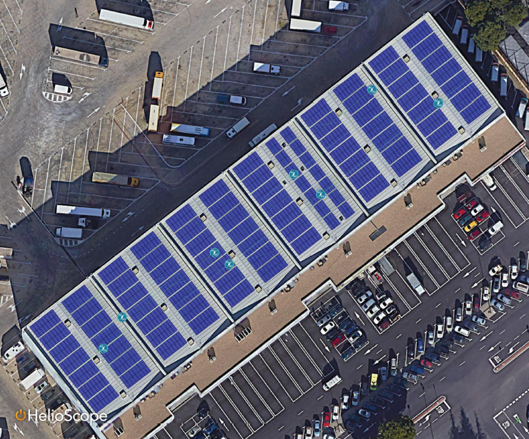PROGRAMA CE IMPLEMENTA – Incentives for Singular Energy Community Projects – Third and Fourth Announcement
On 19th December, the call for applications for the third and fourth calls for Singular Energy Community Projects within the “Programa CE IMPLEMENTA” will open, once the first and second calls for applications have been closed and granted. Deadline will be 12:00 noon on 13th February 2023.
We at SynerHy welcome you to visit the CTM SEnergy project, which was successfully selected under the first announcement, and which is currently under construction:
Final CTM roof project
Here you can see the announcement of the 45 energy community projects which have been granted in the first announcement of the programme, along a brief overview of each project that will be implemented thanks to the programme.
Those two funding opportunities are regulated by the Order TED/1446/2021, published on 22 December 2021, which approved the regulations for granting public funding as part of the incentive plan for unique pilot projects involving energy communities (“Programa CE Implementa”), within the framework of the Recovery, Transformation and Resilience Plan. The aim of this order is to approve the regulations for granting public funds within the Incentive Programme for unique pilot projects involving energy communities.
The purpose of this aid is to strengthen the support system for those interested in creating and developing energy communities, mainly citizens, SMEs and local entities, that are not traditionally involved in the energy field. Due to this type of involvement, these projects are considered unique pilot projects.
Public funding announcements
27 October 2022 – The Spanish Ministry for Ecological Transition and Demographic Challenge (“Ministerio para la Transición Ecológica y Reto Demográfico”, MITECO) has opened two new funding announcements (third and fourth) to support pilot projects for energy communities (“Programa CE IMPLEMENTA”), designed to promote social innovation and citizen involvement within renewable energies, energy efficiency and electric mobility. These are two new announcements of the “Proyecto Estratégico para la Recuperación y Transformación Económica de Energías Renovables, Hidrógeno Renovable y Almacenamiento (PERTE ERHA)”.
Their only differences are the maximum investment per project and the budget of each announcement.
The third announcement establishes a budget of 10 million euros and a maximum investment per project of 1 million euros, whereas the fourth one establishes a budget of 30 million euros and a minimum investment per project of 1 million euros.
Eligible beneficiaries are all legal entities, public or private, that comprise an energy community. However, what is an energy community?

An energy community is defined as a legal entity established on an open and voluntary membership principle, actively managed by partners or members whether individuals, SMEs or local entities, which develops renewable energy, energy efficiency and/or sustainable mobility projects. These projects must be owned by the legal entity and their primary goal is to provide environmental, economic or social benefits to their partners or members and/or the local areas where they operate, rather than financial profit.
Some of the most noteworthy features of the grants are listed below:
-
- The regulated funding will be granted on a competitive tendering process, as a non-refundable contribution.
- The regulated funding will be compatible with other funds granted whenever they are not used to finance the same costs involved in the project.
- Applications will be submitted online from the 1st of February 2022 up to the 1st of March 2022.
- The deadline for implementing the investments will be 14 months.
- Beneficiaries will receive the funding granted once the execution of the project has been verified and the costs have been certified.
- Subcontracting with third parties will be possible for up to 100 % of the incentive activity.
- Any beneficiary may request an advance of up to 80% of the amount of the granted funding.
On the other hand, amongst the main requirements to receive this funding, the most important are:
-
- The application must be submitted along a business plan proving the economic/financial sustainability of the project.
- Guarantee the maintenance and operational activity of the aided project for at least 5 years.
- Allow an open and voluntary membership in the assisted energy community.
- Evidence of at least five members involved in the assisted energy community, of which at minimum one must be a physical person or an SME.
- Evidence that the benefited energy community is actually managed by partners or members who are individuals, local entities or SMEs.
- Evidence that the main goal of the beneficiary energy community is to provide environmental, economic or social benefits to their partners or members and/or the local community in which they operate, rather than financial profit.
- Evidence that the assisted energy community has full property of the eligible assets/facilities.
Eligible projects are:
- Renewable electrical sources of energy
Electrical energy generation facilities connected to grid, whether aimed at self-consumption or not. These includes biomass, biogas, wind, hydroelectric and PV solar.
- Thermal renewable sources of energy
Will be eligible those installations that use renewable energies to generate geothermal energy and ambient energy (aerothermal and hydrothermal).
- Energy efficiency
Projects related to improving efficiency of the thermal environment.
- Sustainable mobility
Purchase of new “switchable” and fuel cell vehicles for shared, collective or community, mobility amongst the members of the Energy Community and deployment of electric vehicle recharging infrastructure. Public use for non-residential use (hotels, shopping centres, etc.), private use (to supply their own fleet) or public use.
- Supply management
Storage behind the meter; equipment for measurement, regulation and control aimed at gathering consumption data in real-time or almost real-time and at implementing measurements for supply management; development or purchase of software intended to facilitate the data gathering, transmission and analysis of the data.

And their subsidisable costs include:
-
- Investments that increase environmental protection levels as a direct consequence of promoting renewable electric and thermal energy, energy efficiency, electric mobility and supply management.
- Costs for providing technical capacities and hiring the appropriate services for adjusting local regulations associated with the project’s development.
- Costs of applying for and justifying the execution of the subsidised project, 7% of the total eligible costs, up to a maximum limit of €10,000 per application.
- Drawing up technical projects.
- Drafting costs of the specifications subject to public tendering.
- Costs of project management.
- Costs of Health and Safety management on site and assembly.
- Costs of implementing the project.
- Investment in both equipment and materials, along with auxiliary facilities and medium-voltage supplies, required to feed the electric vehicle recharging infrastructure into the grid or into the local electricity generation or storage unit.
- Management, active control and monitoring systems. The beneficiary of the funding must be the owner of these systems.
The amount and rate of funding as well as the eligibility requirements are shown in the following tables:

The maximum rate of funding to be applied for is as follows:

* The maximum subsidy rate for public recharging infrastructure is 60%.
To sum up, government institutions consider energy communities to be a key tool to involve citizens and SMEs throughout energy transition. Accordingly, and in keeping with the objectives of PERTE EHRA, the goal is to ensure the replicability of such projects in order to have the widest possible social and economic impact upon their partners.
We at SynerHy are already supporting our clients in the development of such projects, aiming at spreading sustainability as widely as possible amongst our clients.
